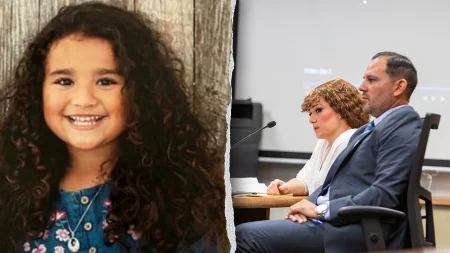Florida Breaks Record with 17th Execution This Year
In a somber moment that marks a historical shift in Florida’s approach to capital punishment, Richard Barry Randolph, 63, was executed Thursday evening at Florida State Prison. Pronounced dead at 6:12 p.m. after receiving a three-drug injection, Randolph’s execution represents Florida’s 17th this year—a record-breaking number since the U.S. Supreme Court reinstated the death penalty in 1976. The previous high was eight executions in 2014, highlighting the dramatic increase under Governor Ron DeSantis’ administration. With two more executions scheduled for December, Florida is poised to end the year with 19 executions, far outpacing other states including Alabama, South Carolina, and Texas, which have each conducted five this year.
Randolph’s final day began at 6:30 a.m., and prison officials reported he consumed a last meal of a cheeseburger, fries, and ice cream. He received one visitor during the day but declined to meet with a spiritual advisor. When the time came for his execution, Randolph offered no final words. Three members of his victim’s family were present to witness the execution, which proceeded without complications according to a spokesperson for the governor. The three-drug protocol used in Florida executions consists of a sedative, a paralytic, and a heart-stopping medication—a combination that has become the standard method in the state’s capital punishment system.
The crime that led to Randolph’s death sentence occurred in August 1988, when he attempted to break into a safe at a convenience store in Palatka where he had previously worked. Store manager Minnie Ruth McCollum discovered him during the robbery attempt, leading to a violent struggle. Court records reveal the horrifying details: Randolph beat, strangled, stabbed, and raped McCollum before fleeing in her car. Three women who witnessed Randolph leaving the store called authorities after noticing the disruption inside. A responding deputy found McCollum alive but grievously injured. She was rushed to a hospital where she remained in a coma for six days before dying from severe brain injuries.
Authorities quickly apprehended Randolph at a Jacksonville grocery store while he was attempting to borrow money and cash in stolen lottery tickets. Investigators reported that he confessed to the attack and led them to bloody clothing he had discarded after the crime. In 1989, just a year after the murder, Randolph was convicted of murder, armed robbery, sexual battery, and grand theft, resulting in his death sentence. His legal battle continued until recently, with the Florida Supreme Court last week denying his final appeal to overturn the conviction. His defense had argued that the lower court abused its discretion by denying him access to public records and that his lawyers had acted without his consent—claims that ultimately failed to persuade the court.
Florida’s accelerated pace of executions stands in stark contrast to national trends, where many states have moved away from capital punishment either through legislative abolition, gubernatorial moratoriums, or simple disuse of the death penalty. The state’s next scheduled execution on December 9 will be that of 58-year-old Mark Allen Geralds, convicted of fatally stabbing a woman during a home invasion robbery. Following shortly after, on December 18, Frank Athen Walls, also 58, is set to be executed for fatally shooting two people during another home invasion. Walls later confessed to three additional killings, adding to the gravity of his crimes.
The increase in Florida executions raises questions about the state’s criminal justice priorities under current leadership. While some view these executions as justice finally served for heinous crimes committed decades ago, others see them as part of a concerning trend toward more aggressive use of capital punishment in a time when many jurisdictions are moving in the opposite direction. The families of victims, like those of Minnie Ruth McCollum who witnessed Randolph’s execution, often describe these moments as providing long-awaited closure. Yet the debate around capital punishment continues, touching on fundamental questions of justice, redemption, and the proper role of the state in administering the ultimate punishment. As Florida continues to set new records for executions, these questions will likely intensify both within the state and across the nation.








